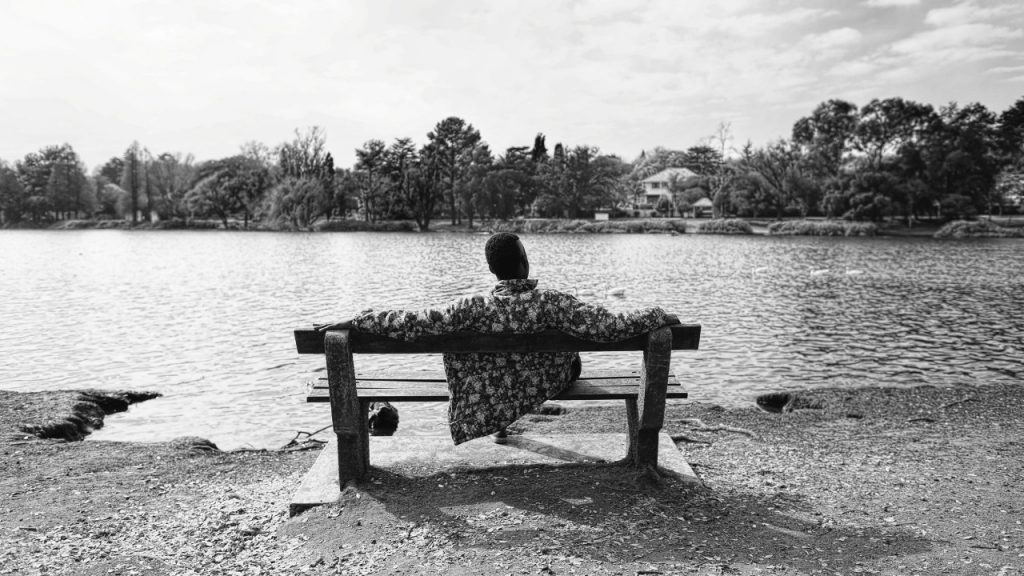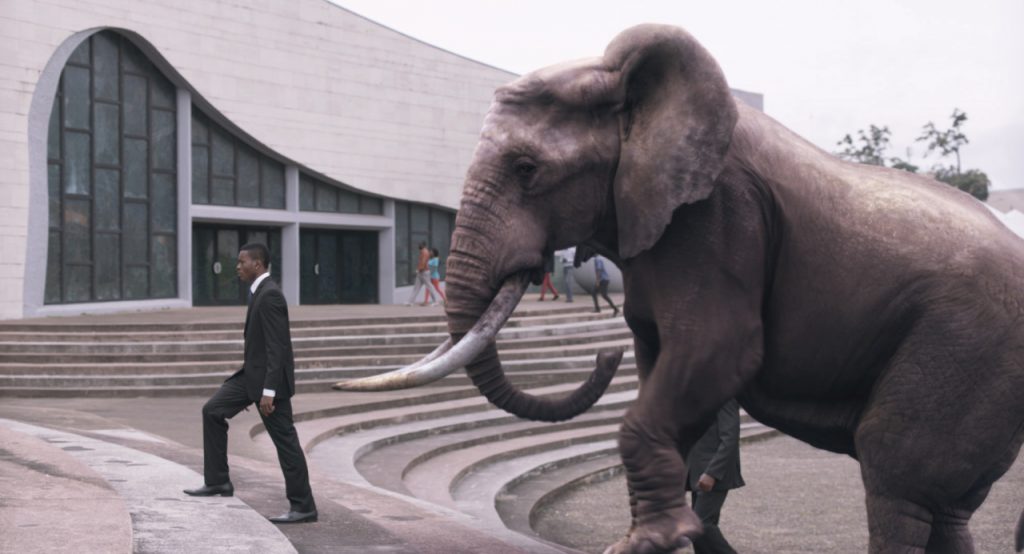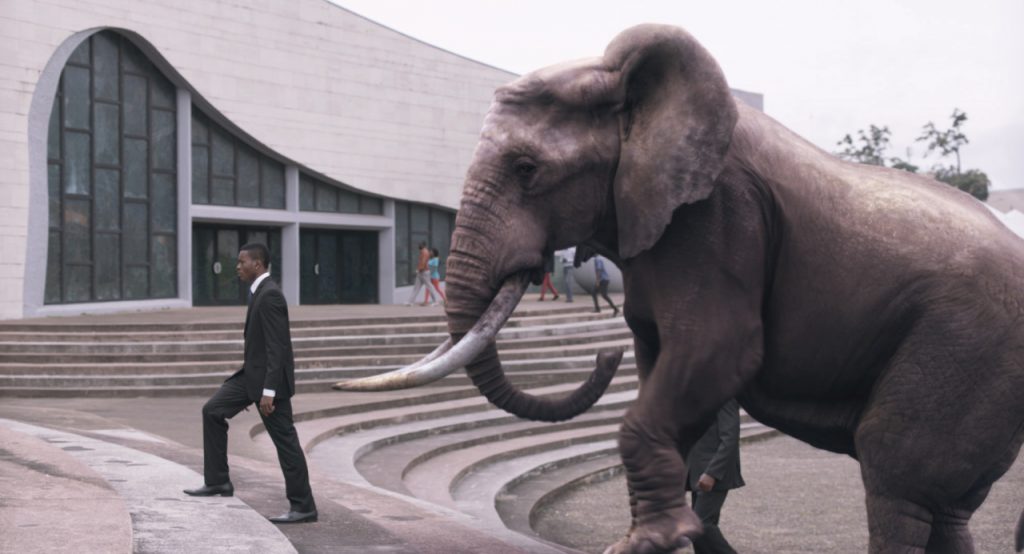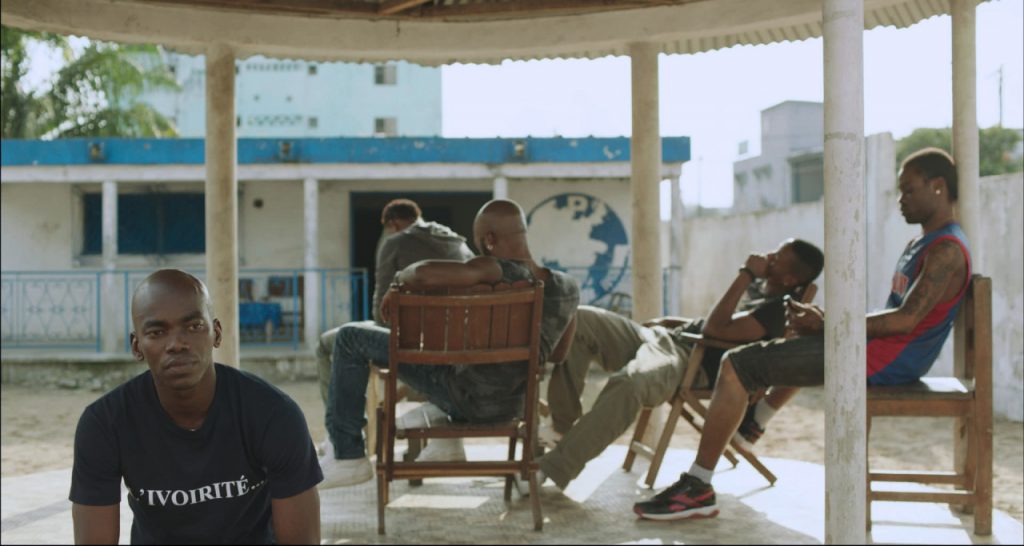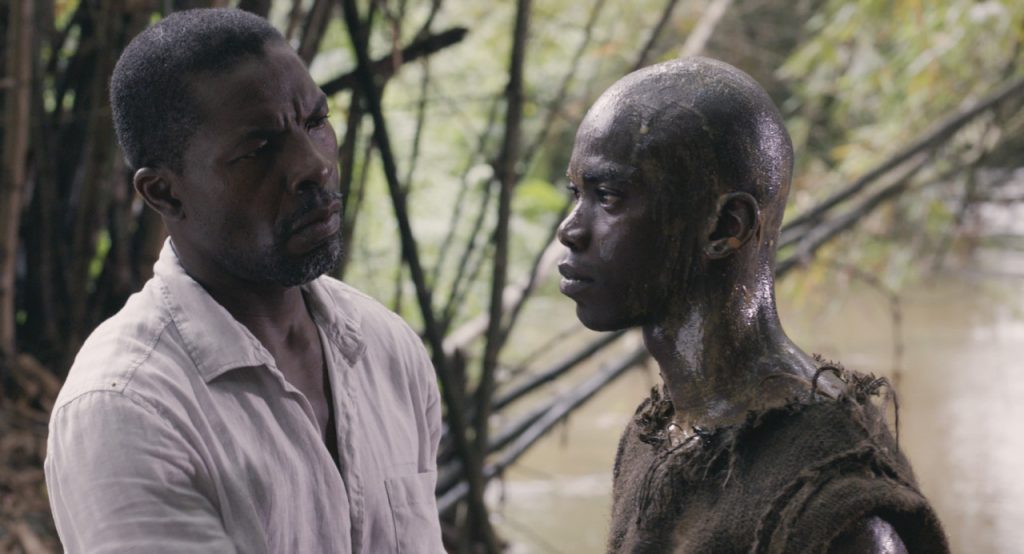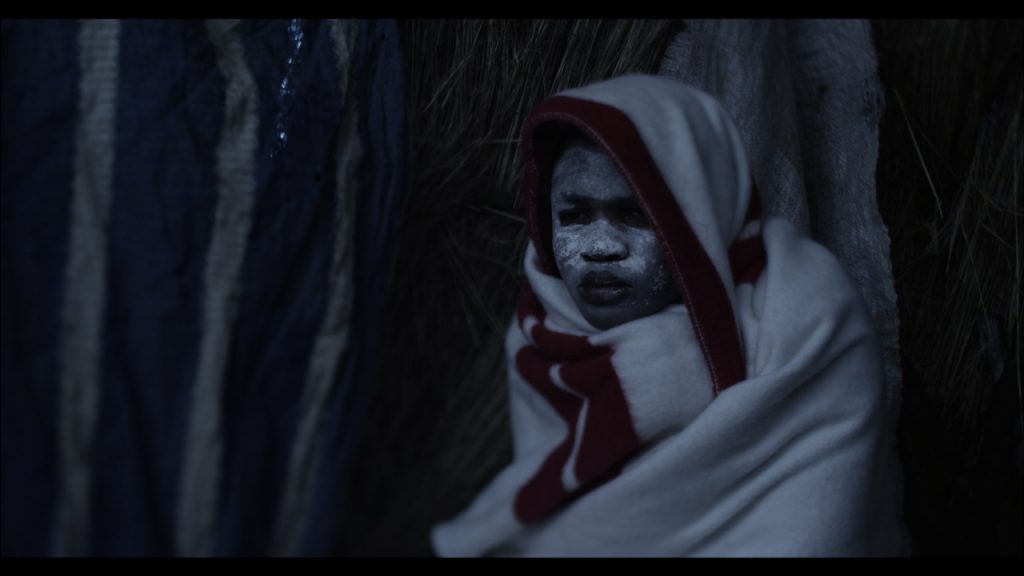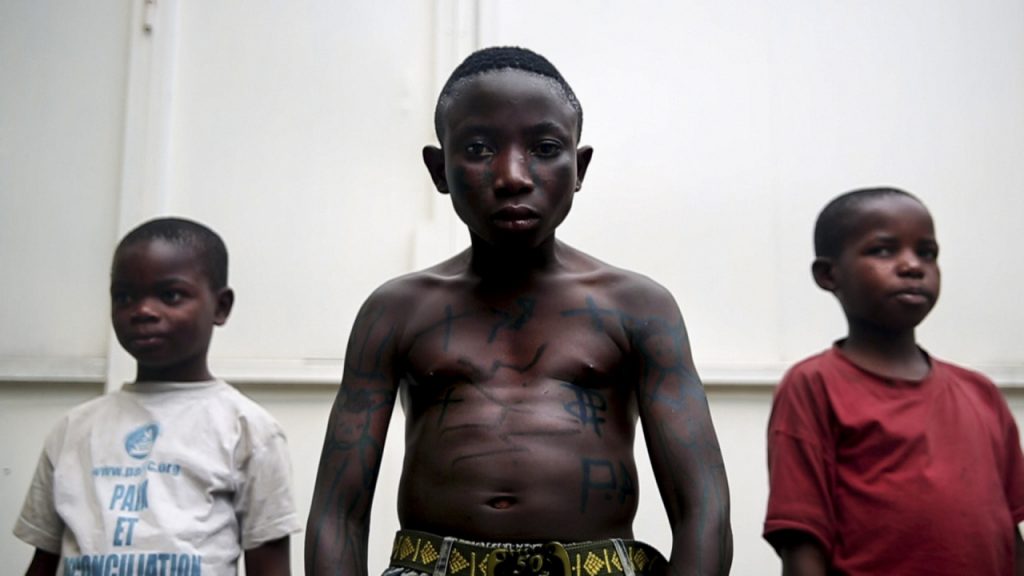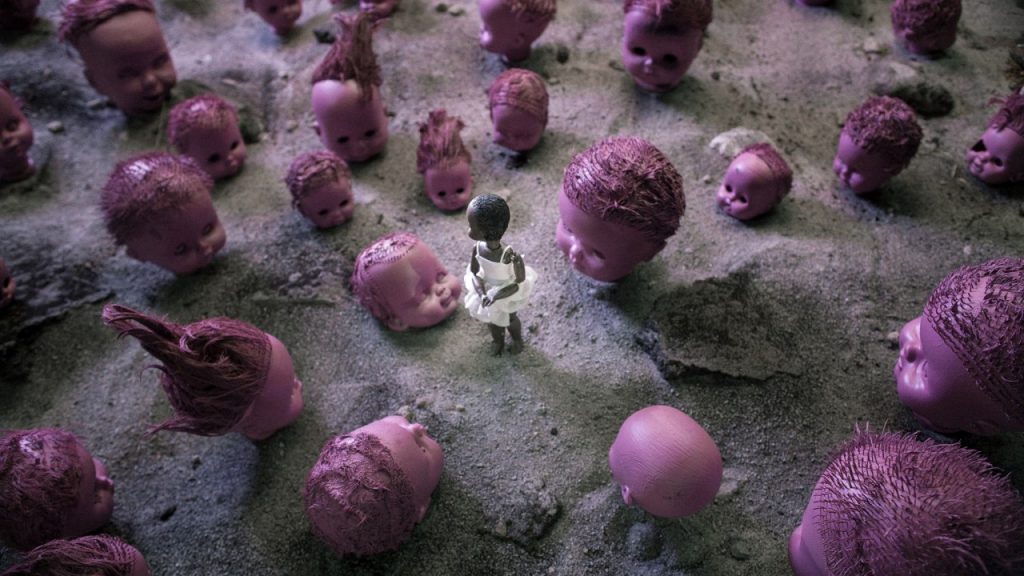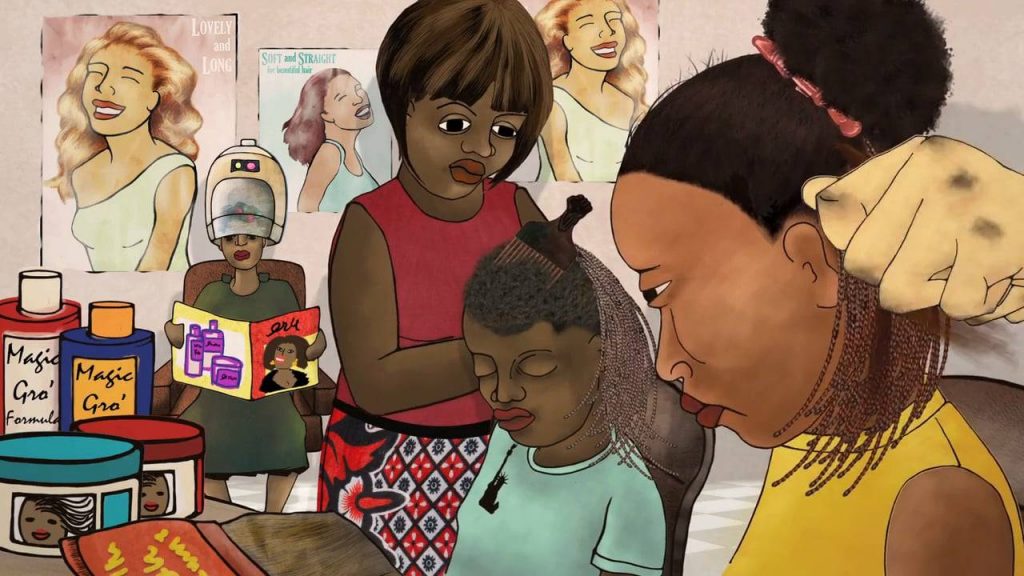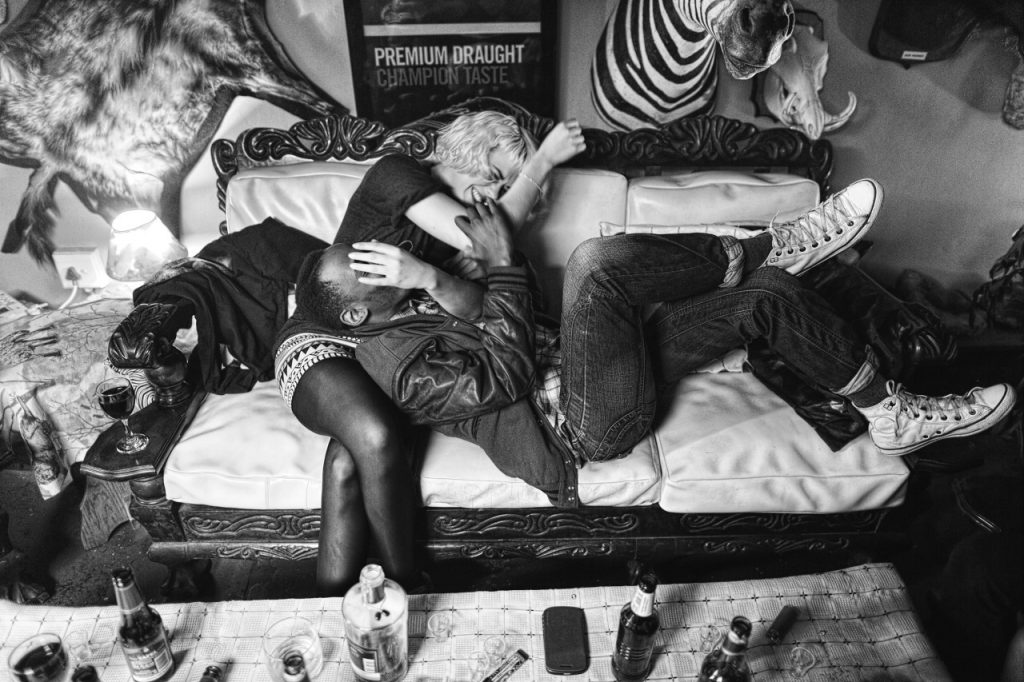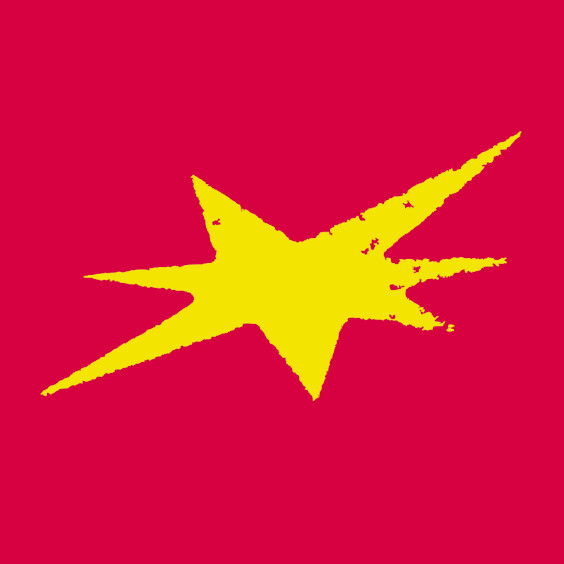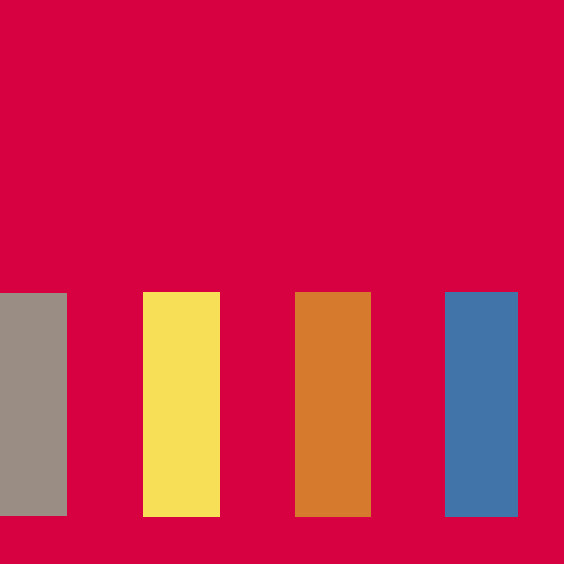A Zambian Fairy Tale: Rungano Nyoni Discusses Her Debut „I Am Not a Witch“ on Notebook
Here’s an interesting short interview with Rungano Nyoni about her singular, strange witch-hunt fairy tale »I Am Not A Witch« (for MUBI Notebook).
»I wanted to make it a fairy tale because I found a really good Zambian way of saying the story, without making it about Zambia. I grew up on fairy tales. I’ve always wanted to do this, actually. In a way, I was trying to get away—perhaps as a first-time filmmaker this is a bit of a cliché—I was trying to get away from ›the arc.‹ It’s always ›the arc, arc, arc arc,‹ and I was trying to do something different. I was trying to do something that I grew up with, which is that my family used to tell me fairy tales and they were really particular. Fairy tales in general are very strange, but Zambian ones mix genres. They’re for kids, but they’re really violent, and they’re funny, and they mix magic realism. All of these things I wanted to take for my film. They are really musical. I was trying to do that.«
Make sure not to miss its Leipzig premiere at GEGENkino 2018: Luru Kino in der Spinnerei, 12th April, 10pm.
Sibs Shongwe-La Mer talks Necktie Youth | TRUE Africa
The end is approaching. Two more days and GEGENkino 2016 will be history. Today already is the last day of our AFRICAN OUTLINES section with two screenings tonight!
8pm at Schaubühne Lindenfels we will present a collection of short films by up-and-coming filmmakers from different African countries in our »Young Africans« programme. And there’s quite a lot to show! Short films with topics ranging from life on the streets to corporeal self-definition. Check out the whole programme here:
Dr. Claudia Böhme from the Institute of Ethnology at Universität Trier will come to screening and introduce the films by giving an overview about the contexts in which these African realities are situated.
10pm, also at Schaubühne Lindenfels we will screen the »Necktie Youth« by the only 23-year-old Sibs Shongwe-La Mer—a teenage drama in the vein of movies like »Ken Park« and a representation of youth in Johannesburg. Stylish as hell!
According to TRUEAfrica, »[Necktie Youth] feels like a revolutionary film; a political awakening that shows another side of Africa, far from the slums, the child soldiers and acacia trees; an Africa which is tapped into the same social network as the kids in a Larry Clark movie or in a Bret Easton Ellis novel«.
Oh, by the way, we will also offer combined tickets for both screenings for 9/8 (red.) euros.
Your GEGENkino crew
Hence, at this year’s GEGENkino we want to show the great diversity of contemporary African cinema in our section AFRICAN OUTLINES.
Today, 9pm at Luru-Kino we will screen the film »Run« – director Philippe Lacôte’s unique take on the First Ivorian Civil War (2002–2007) – with Djinda Kane, Abdoul Karim Konaté and Isaach de Bankolé the last of which you probably remember from several of Jim Jarmusch’s and Claire Denis’s movies. We’re glad to have Diana Ayeh & Natascha Bing of AG Postkolonial Leipzig coming to the screening in order to give an introduction to the movie and some insights into the historical context and the postcolonial concerns of the film.
Looking forward to seeing you tonight!
Your GEGENkino crew
www.leipzig-postkolonial.de
www.engagiertewissenschaft.de
Einführung von Diana Ayeh & Natascha Bing (AG Postkolonial Leipzig)
Run
CIV/F 2014, R: Philippe Lacote, D: Abdoul Karim Konaté, Isaach de Bankolé, Djinda Kane, OmeU, 102’, DCP
Traumwandlerisch geht ein junger Mann im Gottesdienst auf den Premierminister zu und tötet ihn, während alle anderen Besucher still und unbeteiligt auf ihren Plätzen sitzen. Danach beginnt seine Flucht – vor den Verfolgern, vor sich selbst, vor seinen Träumen und Erinnerungen. Unklar bleibt zunächst, ob es auch der Lauf in die Freiheit ist. Voltenreich wie die Flucht seines gleichnamigen Protagonisten, erzählt Run seine Geschichte vor der Kulisse des Bürgerkriegs der Elfenbeinküste, dem von 2002 bis 2007 3.000 Menschen zum Opfer fielen. Regisseur Philippe Lacôte verbindet erzählerische Elemente aus der afrikanischen Mythologie und Naturmystik mit dem realen Kontext der Krise. Sein meisterlicher Plot legt die Biografie eines Freiheitskämpfers frei, der zunächst eigentlich ein Regenmacher sein wollte, dann als Assistent der Jahrmarktkuriosität und professionellen Wettesserin Gladys das Leben eines Tramps führte und sich schließlich der Patriotischen Jugend anschließt und den Untergrundkampf aufnimmt.
26. April, 21 Uhr – Luru-Kino in der Spinnerei
Africa is not a country. Hence, at this year’s GEGENkino we want to show the great diversity of contemporary African cinema in our section AFRICAN OUTLINES.
On Apr 26 we will screen the film »Run«—director Philippe Lacôte’s
unique take on the First Ivorian Civil War that took place in the years
from 2002 until 2007. Diana Ayeh & Natascha Bing of
AG
Postkolonial Leipzig
will give an introduction to the movie, give some insights into the
historical context and the postcolonial concerns of the film.
We’re looking forward!
mit einer Einführung
von Diana
Ayeh & Natascha Bing (AG
Postkolonial Leipzig)
Run
CIV/F 2014, R: Philippe Lacote, D: Abdoul Karim Konaté, Isaach de Bankolé, Djinda Kane, OmeU, 102’, DCP
Traumwandlerisch geht ein junger Mann im Gottesdienst auf den Premierminister zu und tötet ihn, während alle anderen Besucher still und unbeteiligt auf ihren Plätzen sitzen. Danach beginnt seine Flucht – vor den Verfolgern, vor sich selbst, vor seinen Träumen und Erinnerungen. Unklar bleibt zunächst, ob es auch der Lauf in die Freiheit ist. Voltenreich wie die Flucht seines gleichnamigen Protagonisten, erzählt Run seine Geschichte vor der Kulisse des Bürgerkriegs der Elfenbeinküste, dem von 2002 bis 2007 3.000 Menschen zum Opfer fielen. Regisseur Philippe Lacôte verbindet erzählerische Elemente aus der afrikanischen Mythologie und Naturmystik mit dem realen Kontext der Krise. Sein meisterlicher Plot legt die Biografie eines Freiheitskämpfers frei, der zunächst eigentlich ein Regenmacher sein wollte, dann als Assistent der Jahrmarktkuriosität und professionellen Wettesserin Gladys das Leben eines Tramps führte und sich schließlich der Patriotischen Jugend anschließt und den Untergrundkampf aufnimmt.
26. April, 21 Uhr – Luru-Kino in der Spinnerei
Here’s the second part of our section on young African cinema since two films surely aren’t enough to illustrate the vividness and creativity of contemporary African cinema. Therefore, in our AFRICAN OUTLINES programme on Apr 30 we will screen a bunch of films (short and long) from different African countries that will show you the wide range of topics and styles to be found in the cinematic landscape of Africa—from political, post-colonial films to animated experimental films to sci-fi flicks and beyond.
We’re also very happy to have
media-ethnologist Claudia Böhme at our festival to give some context to
films and introduce us to different strands of African cinema.
Hope y’all had a sunny day! See you soon in the screening hall!
Young Africans
Short films and lecture by Claudia Böhme
Hand-drawn and puppetry animation, a documentary and a scenic contribution show landscapes of childhood, places of longing and unhuman urbanities which youths not only pass through as vulnerable beings but furthermore critically look at the adult world. For Patient, Guillain and David, there is nothing to lose and everything to win…so get the fuck out of their way. Theo Anthony’s documentary »Chop My Money« accompanies the three children strolling about on the streets of Gomas, talking about their biographies and dreams and about what it means to be a gangster. Soundtrack by Dirty Beaches. »Yellow Fever« shows the effects of Eurocentric ideals of beauty spread by mass media and advertising on African women, while the dream-nightmare-clash »Walk With Me« tells the story of a young Ugandan girl wishing to be a ballerina. »The Goat« supplements the compilation with a tale of a male circumcision ritual through which one becomes a man and that is to cure of homosexual desire.
Chop My Money (CD 2014, D: Theo Anthony, OV with English subtitles, 13’)
Yellow Fever (UK/KE 2012, D: Ng’endo Mukii, OV with English subtitles, 7’)
Walk With Me (DK/UG 2015, D: Johan Oettinger, Peter Tukei Muhumuza, no dialogue, 12’)
The Goat (SA 2014, D: John Trengove, OV with English subtitles, 13’)
Einführung von Claudia Böhme (Uni Trier)
Claudia Böhme works as media-ethnologist and actress. Her thesis deals with the establishment of a video film culture and an associated industry in Tanzania and processes of cultural negotiation initiated by that. During several years of field research at Dar es Salaam, she accompanied the work of filmmakers and film institutions. Her lecture will introduce us into the history of African filmmaking and give an overview of diverse regional and national film productions along with their distribution and reception. In addition to that, it will be about new developments and movements of »African Cinema«, trends of trans-nationalisation and about the question of boundaries of reception. Lecture in German language.
30 April, 10pm – Schaubühne Lindenfels
Necktie Youth
ZA/NL 2015, R: Sibs Shongwe-La Mer, D: Sibs Shongwe-La Mer, Bonko Khoza, Colleen Balchin, 86’, OmeU, BluRay
Der Suizid einer jungen Frau namens Emily, die ihr Ableben live im Internet gestreamt hat, beschäftigt eine Gruppe Mittzwanziger in Sandton, Johannesburg. Ob Weiß oder Schwarz, niemand kann sich dem Gefühl der eigenen Bedeutungslosigkeit entziehen. Regisseur Sibs Shongwe-La Mer weiß wovon er spricht: Drehbuch und Figuren sind inspiriert von der eigenen Biografie und den Geschehnissen seines unmittelbaren Umfelds. In seinem Debütfilm übernimmt er konsequent auch eine der Hauptrollen und spielt den jungen September, dessen bester Freund Jabz mit Emily zusammen war. Sie alle gehören zu einer Generation der Post-Apartheid in Südafrika, die ihren Platz sucht, ihre eigene Identität erschaffen will und daran so grandios scheitert. Reiche Mittelklasse-Sprösslinge, deren innere Einsamkeit und emotionale Distanz durch Koks, Parties, Image und Exzentrik überlagert werden. Mit Toughness und Realness geraten sie in einen Strudel, der alle relevante zwischenmenschliche Kommunikation frisst. Sie wollen um jeden Preis von der Straße sein, sind es aber nicht. Sie leben in Villen, langweilen sich in Villen und ab und an erhängen sie sich auch dort. In stylischem Schwarz-Weiß werden die sonst so omnipräsenten Bilder von Armut und Verelendung hinterfragt. Sie sind eine Bestandsaufnahme aus dem Inneren einer manischen Welt. Trotz all ihrer Anklage schwingt in ihnen auch eine melancholische Verbundenheit mit, ein Bedauern und der tiefe Wunsch nach Veränderung.
30. April, 22.00 Uhr – Schaubühne Lindenfels

